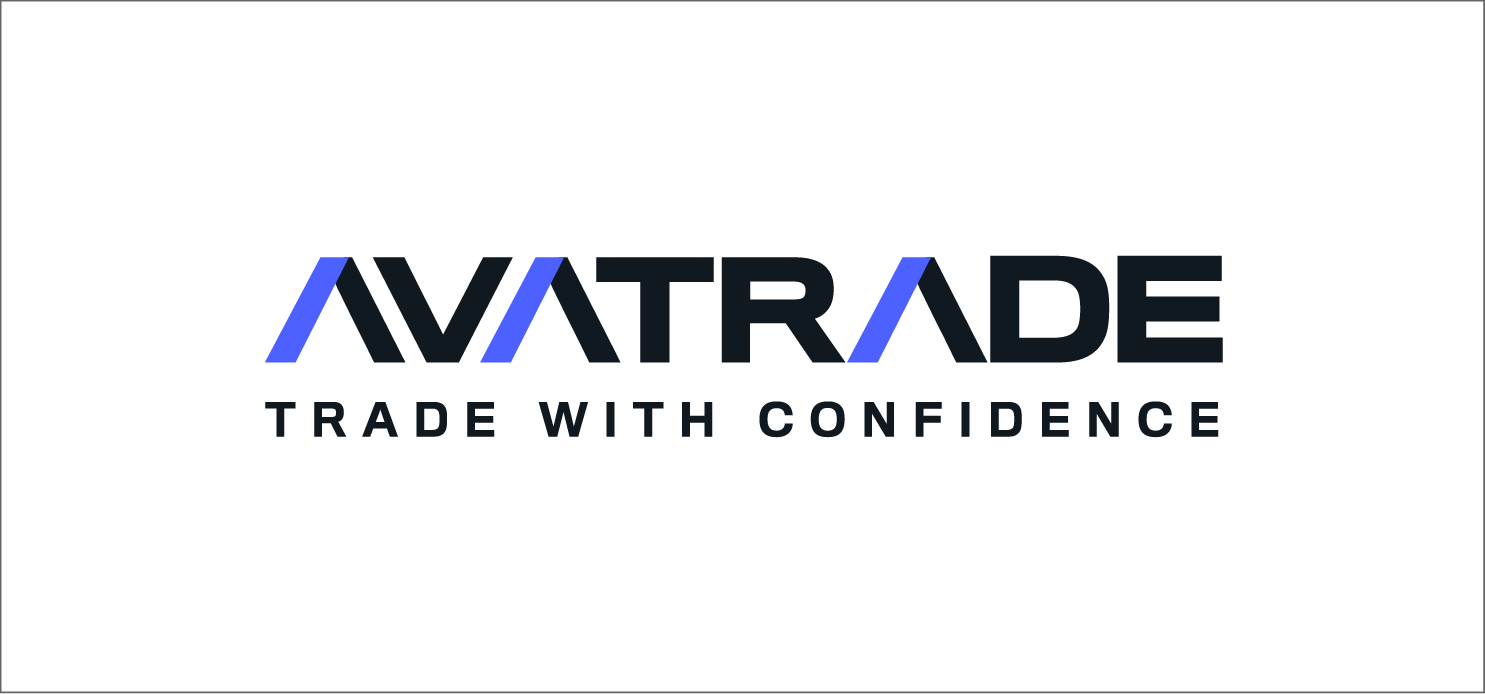Best 6 Stockbrokers in Mexico (January 2025)
All products and services featured are independently selected by WikiJob. When you register or purchase through links on this page, we may earn a commission.
- A list of the Top Stockbrokers in Mexico for January 2025:
- Comparison Chart of the Best Stockbrokers in Mexico for January 2025
- Description of the Best Stockbrokers in Mexico for January 2025
- What Are the Different Types of Stockbrokers?
empty
empty
empty
- How Do Stockbrokers Make Money?
- Are Stockbrokers in Mexico Regulated?
- How to Choose a Stockbroker in Mexico
- Frequently Asked Questions
- Final Thoughts
If you want to make your money work harder for you by investing in stocks, forex, commodities, or any other trading market, the first step is to identify a reliable stockbroker in your country.
A stockbroker purchases and sells stocks, forex and other investment assets on behalf of its customers in return for a commission fee.
It acts as an intermediary between the trading markets and the investor.
A stockbroker can provide a comprehensive management service for your investment portfolio that can make choices on your behalf, advise you on how to manage your own trading transactions or simply conduct your instructed transactions without offering advice.
Generally, stockbrokers will be financially regulated in one or multiple countries.
A list of the Top Stockbrokers in Mexico for January 2025:
Comparison Chart of the Best Stockbrokers in Mexico for January 2025
Regulation FCA, DFSA, CySEC, BaFIN, ASIC, CMA, SCB | Assets CFDs (Forex, Crypto, Stocks, ETFs, Indices, Commodities) | Platforms MetaTrader 4, MetaTrader 5, cTrader, TradingView | |||
Regulation ASIC, FSCA, FSA, BVI FSC, Central Bank of Ireland | Assets Forex, CFDs, Cryptocurrencies, Stocks | Platforms MetaTrader 4, MetaTrader 5, AvaTrader, WebTrader | |||
Regulation FCA, KNF, CySEC, IFSC | Assets Forex, CFDs, Cryptocurrencies, Stocks | Platforms xStation 5, MetaTrader 4 | |||
Regulation FCA, ASIC, CFTC, NFA, MAS | Assets Forex, CFDs, Cryptocurrencies, Stocks | Platforms IG Trading Platform, MetaTrader 4 | |||
Broker Saxo | Regulation FSA, FCA, ASIC, MAS | Assets Forex, CFDs, Stocks, Bonds, Futures | Platforms SaxoTraderGO, SaxoTraderPRO | ||
Broker Interactive Brokers | Regulation SEC, FINRA, FCA, ASIC | Assets Stocks, Options, Futures, Forex, CFDs | Platforms Trader Workstation (TWS), WebTrader, MobileTrader |
Description of the Best Stockbrokers in Mexico for January 2025
Now that you know about the different types of stockbrokers and the key factors to consider before choosing one, here are the 10 best stockbrokers to use in Mexico.
This list is not exhaustive, and you should always check that a stockbroker is regulated and suitable for your needs before you hand over any money.
1. Pepperstone
Pros
- Extensively regulated
- No minimum deposit
- Low fees and mostly free withdrawals
- Good customer service
Cons
- No investor protection for clients outside UK, EU and EEA
- Withdrawal fee for international bank wires
- CFDs only
Best for: Forex traders
Trading fees: Low forex fees but high CFD financing fees
Minimum deposit: 0
Assets traded: CFDs in: FX, Crypto, Shares, ETFs, Indices, Commodities, Forwards
Please note: Pepperstone only offers CFDs, not the underlying asset.
Pepperstone is an Australian CFD broker with a focus on forex. It does not provide the chance to trade in any physical assets, only via CFD.
It is regulated by the FCA, BaFin, CySEC, ASIC, DFSA, SCB and CMA.
In addition to its platform analytical tools and indicators, Pepperstone provides in-house research material and resources from third-party suppliers, including daily articles, in-house videos, weekly webinars, economic calendar, AutoChartist software, Smart Trader Tools and Delkos risk management tools.
Educational resources are focused on forex rather than CFDs and include articles, trading guides, webinars, MetaTrader 4 course, forex trading course and educational videos.
Pepperstone provides 24/5 customer service through telephone, email or live chat.
To find out more, read our Pepperstone Review.
2. AvaTrade
Pros
- Worldwide regulated
- Multiple platforms – MT4, MT5, etc.
- Negative balance protection
- 20% welcome bonus
- Educational content
- Wide rage of payments methods
- Fixed spreads
Cons
- You can’t buy stocks
- Quarterly and annual inactivity fees
- Custumer support is not available 24/7
- No bonus for EU based clients
- No US clients accepted
- Imitated crypto assets
AvaTrade is a CFD Regulated broker with +1,000 financial instruments and multiple trading platforms. It has been operating since 2006.
It offers a 20% welcome bonus up to $10,000, according to regulation and a free 21-day demo account with $100,000.
Instruments include:
- Metals
- Commodities
- Stocks
- FX Options
- Oil
- ETFs
- Options
- Crypto currencies
- CFDs
- Indexes
- Shares
- Spread betting
- Indices
- Forex
- Bonds
AVATrade EU Ltd is regulated by the Central Bank of Ireland. (No.C53877) Ava Trade Markets Ltd. is regulated by the B.V.I Financial Services Commission. It is also highly regulated in Australia, South Africa, Japan, Middle East, Cyprus and Israel
You can not trade with AvaTrade in the US, North Korea, New Zealand, Iran or Belgium.
Mínimum deposit of $100, no withdraw limit and no fees.
3. XTB
Pros
- Regulated by the FCA
- Low forex fees
- Fast withdrawal and deposit with no fee
- Live chat customer service
Cons
- No US clients
- Limited product portfolio
- High fees for stock CFDs
Best for: Traders who want to keep their costs low
Trading fees: Low forex fees but high stock CFD fees
Minimum deposit: 0
Assets traded: forex, stock CFDs, commodity CFDs, ETF CFDs, indices CFDs, cryptocurrencies
XTB is a forex and CFD stockbroker regulated by the FCA, CySEC, KNF, CNMV and IFSC.
XTB’s research offering is not as extensive as many of its competitors, including analytical tools accessed through its platform, Market Newsfeed, forex price tables and a market calendar.
Its ‘Learn to Trade’ section includes courses for all levels of trading experience through the 'Trading Academy', live webinars and articles.
For European clients, customer service is available 24/5, with no weekend cover. However, if you live outside Europe, customer service cover is 24/7. Contact can be made by telephone or email.
CFDs are complex instruments and come with a high risk of losing money rapidly due to leverage. 76% of retail investor accounts lose money when trading CFDs with this provider. You should consider whether you understand how CFDs work and whether you can afford to take the high risk of losing your money.
4. IG
Pros
- Highly regulated
- MetaTrader 4 (MT4)
- Over 10,000 instruments
- Available in the UK and US
- 24/7 customer support
Cons
- High fees
- No deposit compensation scheme for US accounts
- No copy trading
- Inactivity fees
IG invented spread betting in 1974 and today is the world’s leading online trading provider with more traders trusting them with their money than anyone else
IG is authorised and regulated by the FCA and provides traders access to over 18,000 markets. IG offers more 24-hour indices than any other provider, and extended hours on over 70 key US stocks
For those who prefer to own the underlying asset, IG offers access to over 13,000 global shares and ETFs, or a wealth portfolio managed by one of their experts.
Benefits:
- Advanced platform and charting – L2 dealer, ProRealTime and MT4
- Demo account
- Extended trading hours
- Extensive range of products
- Daily expert analysis & educational resources
- Round-the-clock customer service
- Negative balance protection for retail clients
Based on revenue (published financial statements, October 2022). 24/7 excludes the hours from 10 pm Friday to 8 am Saturday (UK time), and 20 minutes just before the weekday market opens on Sunday night.
Your capital is at risk. Spread bets and CFDs are complex instruments and come with a high risk of losing money rapidly due to leverage. 70% of retail investor accounts lose money when trading spread bets and CFDs with this provider. You should consider whether you understand how spread bets and CFDs work, and whether you can afford to take the high risk of losing your money.
5. Saxo
Pros
- Heavily regulated
- Good product portfolio
- Low forex fees
- No withdrawal fee
Cons
- Does not accept US clients
- High fees for options, futures and bonds
Best for: Traders with an advanced level of knowledge
Trading fees: Generally low to average fees, although high fees for bonds, options and futures
Assets traded: stocks, commodities, forex, ETFs, bonds, CFDs
Saxo is regulated by the FCA, FSA, the Swiss Federal Banking Commission and several other regulatory bodies globally.
Saxo offers a good range of technical analysis tools and interactive charts.
Its research resources are a high standard, including its real-time newsfeed, access to commentary by trading experts, market reports and trading idea generators.
Their educational resources include courses, video guides, events and webinars.
Saxo customer service is 24/5 via email or telephone.
6. Interactive Brokers
Pros
- Regulated
- Wide range of offerings
- Low commission
- Socially responsible
- 24/5 customer support across multiple channels
Cons
- No additional platforms
- Inactivity fees
Best for: Institutional investors and experienced active traders
Trading fees: Low trading fees for the basic account. High trading fees for the Pro version. ETFs are available with no trading fees
Minimum deposit: Varies between accounts, ranging from 0 for a cash account to $110,000 for a portfolio margin account
Assets traded: Stocks, commodities, forex, ETFs, bonds, CFDs
Interactive Brokers is regulated by the FCA, US SEC and CFTC. Research resources include technical analysis tools, a newsfeed and a ‘Traders Calendar’.
It provides educational resources and courses via IBKR Campus, including Traders Academy, IBKR webinars, Traders Insight, IBKR Quant blog and Student Trading Lab.
There are also educational videos and a trading glossary.
Interactive Brokers offers a 24/5 customer service through telephone (with a callback feature), live chat or an AI-bot which points you to the relevant FAQ. Customer service is not available on a weekend.

What Are the Different Types of Stockbrokers?
The sort of stockbroker you select will be determined by the services you desire.
Do you want your portfolio to be completely handled by your stockbroker?
Do you want investment guidance, or do you want total control over your trading transactions?
Full-Service Brokers
Full-service brokers offer a complete and wide-ranging portfolio management service, including:
- Investment research and advice
- Carrying out trading transactions on your behalf
- Portfolio analysis and building
- Tax advice
- Reporting
- General wealth management
You may well be assigned a personal stockbroker to manage your portfolio.
Full-service brokers are the most expensive of the three types; however, for that extra cost, you will generally benefit from access to an extensive research team.
Advantages: You can hand over your portfolio and know it will be completely managed on your behalf, so you do not have to spend time on research (unless you want to) and transactions.
Disadvantages: This service is the most expensive, and you do not have the same level of control as more limited service providers.
Discount Brokers
The service offered by a discount broker will be less costly than that of a full-service broker but also less extensive.
A discount broker will carry out trading transactions on your behalf but will not offer financial advice.
Advantages: This service is less expensive than a full-service broker and leaves you in control of your portfolio.
Disadvantages: You have to do all the research yourself as a discount broker offers no financial advice.
Online Stockbrokers
Online stockbrokers offer you direct access to their trading platform. Although they are often used by new traders, they are most suitable if you already have a level of trading experience.
This type of stockbroker generally offers research and educational resources; however, this will vary from an online broker to broker.
Advantages: Less costly than a full-service broker, using an online stockbroker service puts you in control.
Disadvantages: Research and educational resources are available; however, there is no personalized advisory service.
How Do Stockbrokers Make Money?
Whichever type of stockbroker you trade through, it will make its money from the commission and fees you pay for its service, leverage and interest earned on uninvested client funds.
Are Stockbrokers in Mexico Regulated?
To trade on the Mexican stock exchanges, a stockbroker must be authorized by Mexico’s National Banking and Securities Commission (Comisión Nacional Bancaria y de Valores, or CNBV).
However, it is always recommended that you use a stockbroker who has tier-1 regulation, for example, FCA (Financial Conduct Authority) and ASIC (Australian Securities and Investment Commission).
How to Choose a Stockbroker in Mexico
Any financial endeavor carries a level of risk, and when it comes to trading, one of those risks is the stockbroker you use.
So how do you find not only a trustworthy stockbroker but one that serves your purposes?
Step 1. Know What You Need
Before you look around at available stockbrokers, the first step is to decide what you need.
For example:
- Do you want a full-service that will take the entire process off your hands but offer plenty of research and advice?
- Are you confident enough in your own trading knowledge and research skills to make all the trading decisions yourself? Or do you simply need a broker to make the transactions for you without offering advice?
- Would you like to carry out transactions online, but also have access to easily available research and education resources?
- Do you want one-to-one advice and personalized service?
- What can you afford to spend in trading and fees?
- What volume of trading do you want to carry out?
All of these considerations will inform the type of stockbroker you choose.
Step 2. Listen to Other Investors
Which stockbrokers do other investors recommend and which have a less favorable or even bad reputation with traders?
Find a wide range of stockbroker reviews to get a genuine picture of a stockbroker’s performance, and bear in mind that traders vary in what they need from a stockbroker. Try to find reviews from traders who are similar to you.
Step 3. Make Sure Your Stockbroker Is Regulated
One important factor to check for any stockbroker you are considering is its level of regulation.
It is always recommended that you use a stockbroker that has tier-1 regulation and also multiple regulations.
In Mexico, the stockbroker must be authorized by the National Banking and Securities Commission (Comisión Nacional Bancaria y de Valores, or CNBV).
A stockbroker’s website should make it clear whom it is regulated by.
Step 4. Do You Want to Deposit and Withdraw in Mexican Peso?
Check whether the stockbroker of your choice will allow you to deposit into and withdraw from your trading account in Mexican pesos.
Step 5. Make Sure the Broker Keeps Client Funds Separate For Safety
Does the stockbroker keep customer money in a separate account from its own business funds?
Separating client funds in this way adds an extra level of security and transparency.
Step 6. Find Out What Assets It Trades
There is no sense in working with a stockbroker that doesn't trade the assets you are interested in, whether that is forex, commodities or shares.
Before you consider a stockbroker, find out whether it trades the assets of your choice.
Step 7. Know the Trading and Non Trading Fees
Stockbrokers make their money from a variety of fees, both related to trading transactions and also non-trading factors, such as withdrawal fees.
Before you decide to trade through a stockbroker, you must be fully aware of exactly what fees you will be expected to pay.
Some stockbrokers charge a flat-fee to their trading clients, while others take a percentage fee.
Some have a maximum commission charge, while others set no such limit.
What non-trading or administrative fees does it charge? For example, will you be charged an inactivity fee if you do not trade for any period?
Step 8. Know What Trading Platform You Want to Use and Why
A trading platform is a piece of software that can be accessed online or downloaded, which allows trading transactions, monitoring and reporting.
What trading platform does the stockbroker provide, and what type of access does it offer you to that platform?
What type of analysis tools does the platform have?
How customizable is it, and does it suit your level of expertise?
Do you have free access to the platform, or does it come at a cost?
Step 9. Does It Have Social Copy Trading?
Social copy trading is increasingly popular among traders.
Copy trading is the method of replicating the transactions of more experienced traders.
You buy what they buy and sell when they sell.
Social copy trading combines this with using the trading community and research and educational resources to increase your level of trading knowledge.
If you are interested in social copy trading, find a stockbroker who offers copy trading, research and educational resources, and a community of traders that you can interact with.
For more information, read What Is Social Copy Trading?
Step 10. How Good Are the Analytical Tools?
In trading, technical analysis informs your future investments by indicating what assets to buy or sell.
The level to which you personally use technical analysis tools will vary depending on how much control you want to hand over to your stockbroker.
However, if you want to use their trading platform yourself, a good level of suitable analytical tools is important.
Are you able to interrogate the platform with a variety of indicators such as volume and moving averages? Is it easy to apply a filter and change views and charts?
Do the available analytical tools suit your needs?
Step 11. How Good Are the Educational Resources?
If you want to learn about trading rather than simply handing over control, your stockbroker should be one of the first places you go to find educational resources.
Its learning materials might include:
- Articles
- Newsfeed
- Videos
- Webinars
- Courses
Step 12. What Is Its Customer Service Like?
Whether you use a full-service broker, a discount broker or an online broker, the quality of customer service should still be high.
However, the details of that customer service may vary between brokers.
What do you need?
- 24/7 coverage, or would 24 hours Monday to Friday suffice?
- Customer service in Spanish?
- Contact by telephone, or are you happy with email or live chat?
Make sure the customer service provided suits your requirements.
75.3% of retail investor accounts lose money when trading spread bets and CFDs with this provider.
Any Mexican citizen can invest and trade in the foreign exchange market. It is completely legal to trade forex in Mexico if you are a Mexican citizen.
Forex trading is not the most popular form of trading in Mexico, but any traders that are interested in forex can register with an FX or CFD brokerage firm.
The central bank in Mexico is one of the main overseers of forex trading.
The best way to find forex brokers and investors in Mexico is online. Brokers found online may be located in Mexico or might be off-shore.
The websites Babypips, Myfxbook and Earnforex are forums where established forex traders congregate. Having access to these forums will enable you to interact with investors who have had success in trading forex.
You can also use social trading platforms like International Brokers. However, these are best for established traders who have experience with trading forex.
If you are a US citizen making a living from trading forex, you will have to still pay taxes if you live in Mexico.
You are legally required to file for a US annual tax return whether you pay taxes in Mexico or not.
On top of this, you can expect to pay taxes in Mexico. US citizens who live in Mexico may be expected to pay a maximum of 30% of their total income.
The more money you earn, the higher your tax bracket will be.
Olymptrade is an online trading platform that has been operating since 2014. It is available to use in 194 countries across the world, including Mexico.
The platform is a category A member of the Financial Commission (FinaCom), meaning it is a highly reliable and safe service to use.
Not only is it reliable to use in Mexico when you trade in forex or any other method, but it is also one of the most reliable platforms you can use wherever you are in the world.
To own American stocks there are no citizenship requirements. If you live in Mexico or are a Mexican citizen, you can invest in American stocks.
While these stocks and shares are regulated by US law, there is nothing to state that you cannot invest in the US market.
Before investing in any US stocks, ensure that you are aware of the federal laws surrounding the US stock market.
Robinhood is an American financial service company that is based in California.
It has been in operation since 2013, but it is not available outside the US.
You cannot get access to Robinhood’s financial services for Mexico or any country other than the US. There were plans to open up Robinhood’s services in 2020 to other international markets, but they have been postponed for now.
Yes. The Mexican Stock Exchange is known as the Bolsa Mexicana de Valores (BMV) and is based in Mexico City.
The exchange mainly deals with equities, derivatives and fixed income products.
In 2021 it was recorded that there were a total of 148 companies on the exchange that had a combined market capitalization of $530 billion.
The New York Stock Exchange (NYSE) is not restricted to citizens who live in New York. You can invest in the NYSE as a foreign citizen as there are no specific laws that forbid individuals from making investments.
To Invest in the NYSE from Mexico you can use a list of international online brokers who have NYSE stocks listed. Pepperstone is a good platform for investing in international stocks.
As Robinhood is only accessible in the US, you must be a US citizen or have a permanent residence with a legal address in a US state.
The only way to get access to a Robinhood account if you live outside the US is to have a US visa.
Illegal immigrants cannot use Robinhood and anyone who does not have the above requirements cannot use Robinhood either.
The Mexican Stock Exchange is open and operates between the hours of 8:30 a.m. to 3:00 p.m. on weekdays.
It is a continuous market, meaning that trade continues consistently between the hours of operation.
The Mexican Stock Exchange does not open during weekends, and it does not shut down during lunch hours.
The Mexican Stock Exchange is known as the Bolsa Mexicana de Valores (BMV). It operates out of Mexico City and is one of the two stock exchanges located in Mexico.
The other stock exchange is known as the Institutional Stock Exchange, or the Bolsa Institucional de Valores (BIVA).
The BIVA is also located in Mexico City and has been in operation since 2018. The reason why there are two stock exchanges in Mexico City is because of low stock performance. The operation of two stock has increased the stock liquidity, meaning an increase in the availability of certain stocks to match with the demand.
The Mexican Stock market lists around 140 stocks and has a market cap of $530 billion US dollars. It is the second-largest stock exchange in Latin America, only behind the B3 stock exchange based in Sao Paulo, Brazil. The Mexican Stock market was founded in 1933 and has been in operation since. The prime currency of trade is the Mexican Peso.
Final Thoughts
As a client in Mexico, there is a wide range of stockbrokers available to you. Before you begin your search, however, it is always recommended that you consider your specific needs. For example:
- How much trading do you want to carry out personally? Would you rather simply instruct a broker to carry out your transactions for you?
- What do you want to trade in? Are you interested in forex, for instance, or commodities?
- Do you want your stockbroker to provide financial advice and research, and educational resources?
- How much money do you have to invest?
- How well is your money protected in their hands?
When considering a stockbroker, check their level of regulation, their reputation within the trading community, and whether they hold client funds separately from their own.
Ultimately, your choice of a stockbroker will come down to what is the best fit for you.
WikiJob does not provide tax, investment, or financial services and advice. The information is being presented without consideration of the investment objectives, risk tolerance, or financial circumstances of any specific investor and might not be suitable for all investors. Past performance is not indicative of future results. Investing involves risk including the possible loss of principal.













